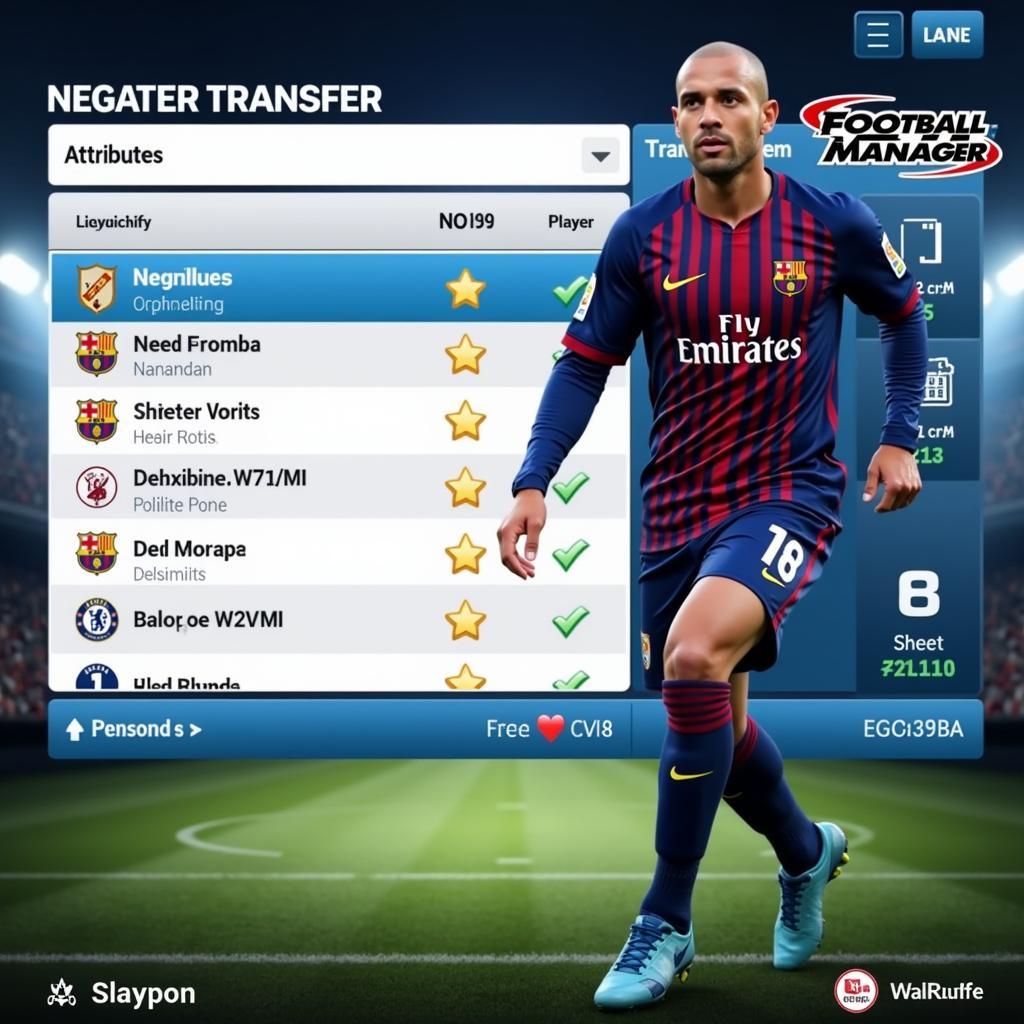Selling Older Players in Football Manager: Maximizing Profits and Rebuilding Your Squad
October 13, 2024Selling older players in Football Manager can be a delicate balancing act. While they might still possess valuable experience and leadership qualities, their declining physical attributes and potential for further development necessitate strategic decision-making. This comprehensive guide will equip you with the insights and tactics to effectively sell aging players, maximize your transfer profits, and pave the way for a successful squad rebuild.
 Football Manager Transfer Window – Selling an Older Player
Football Manager Transfer Window – Selling an Older Player
Identifying the Right Time to Sell
Timing is everything in the transfer market, especially when dealing with older players. Holding onto them for too long can result in a significant decrease in their value, leaving you with limited options and a smaller transfer budget. Here are some key factors to consider when determining the optimal time to sell:
- Age and Contract Length: As players enter their 30s, their physical attributes begin to decline, and their market value starts to dwindle. Players with one or two years left on their contracts present an ideal opportunity to cash in before their value drops significantly.
- Current Performance and Potential: Analyze their recent performances and assess their future potential. If their contributions on the pitch are diminishing and their potential for growth is limited, it might be time to cut ties.
- Squad Role and Competition: Evaluate their role within your squad. Are they still key players, or have they transitioned into more of a backup or rotational role? Consider the competition for places within your squad and whether younger talents are ready to step up.
Setting Realistic Asking Prices
While it’s tempting to demand a hefty fee for an experienced player, it’s crucial to set realistic asking prices that align with their market value. Overpricing an older player can deter potential buyers and lead to protracted negotiations that ultimately benefit neither party. Here’s how to determine a fair asking price:
- Utilize the Player Valuation Tool: The in-game valuation tool provides a helpful starting point for understanding a player’s worth in the current market.
- Factor in Contract Length and Wages: Players with shorter contracts and lower wages tend to command higher transfer fees.
- Consider the Player’s Reputation and Recent Form: Players with strong reputations and consistent performances will naturally attract more interest and potentially higher bids.
- Be Open to Negotiation: Flexibility is key in transfer negotiations. Be prepared to adjust your asking price based on the buyer’s interest and the overall market conditions.
Negotiation Strategies for Successful Sales
Negotiating the sale of an older player requires a combination of tact, strategy, and a willingness to compromise. Here are some effective negotiation tactics to employ:
- Highlight Intangible Assets: While their physical attributes might be waning, emphasize their valuable experience, leadership qualities, and potential to mentor younger players.
- Leverage Interest from Multiple Clubs: If you receive interest from several clubs, use it to your advantage. Inform clubs about competing offers to create a sense of urgency and potentially drive up the price.
- Incorporate Add-ons and Clauses: Consider including add-ons based on appearances, goals, or team performance. You can also negotiate sell-on clauses, which entitle you to a percentage of the player’s future transfer fee if they are sold again.
Reinvesting Your Profits Wisely
The funds generated from selling older players can be strategically reinvested to strengthen your squad and build for the future. Here are some areas to prioritize when reinvesting your transfer profits:
- Youth Development: Invest in your academy and scouting network to identify and develop promising young talents.
- Key Signings: Identify areas within your squad that require immediate strengthening and allocate funds to acquire players who can make an instant impact.
- Wage Budget Flexibility: Freeing up wage budget space by offloading older players on higher salaries allows you to attract and secure contracts with high-quality replacements.
Conclusion
Selling older players in Football Manager is a crucial aspect of squad management and long-term success. By understanding the factors influencing their value, setting realistic asking prices, employing effective negotiation strategies, and reinvesting your profits wisely, you can navigate the transfer market with confidence and build a competitive squad for years to come. Remember, selling an older player isn’t just about maximizing profit; it’s about making strategic decisions that benefit your club’s present and future.